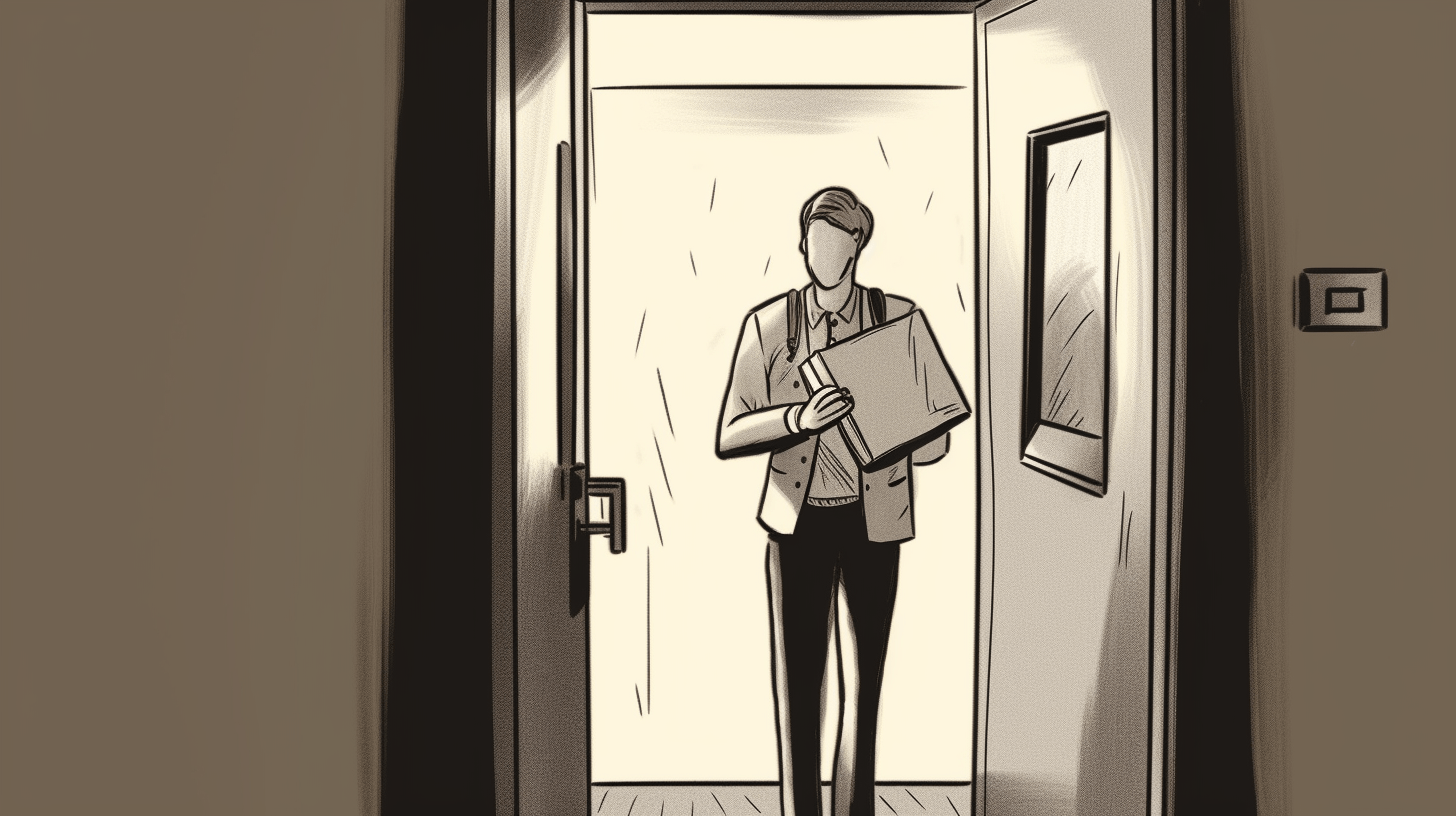As GPT-4 reshapes the labor market, policymakers may soon need answers

AI is already transforming jobs, raising serious questions in the process. Policymakers should start looking for answers.
"It happened to me today," reads a thread on Reddit in which a freelance writer complains that he just lost his "biggest and best" client to ChatGPT. The client had told him that while he wrote better copy than the AI, ChatGPT's price-performance ratio was simply unbeatable.
"Just be better"
Maybe writers like the anonymous Reddit poster just aren't good enough to keep up with AI, critics say. Just being a little better is no longer enough.
Or as renowned online marketing expert Seth Godin put it last December, "If your work isn’t more useful or insightful or urgent than GPT can create in 12 seconds, don’t interrupt people with it. Technology begins by making old work easier, but then it requires that new work be better."
But how much better does it have to be when the competition costs next to nothing? Besides, AI systems are just starting to develop. They can get much better.
And even if they don't, who cares if the experts who can judge quality in their respective fields are no longer in business? Especially for laymen, price is often the most important factor.
"Yes, I am better than ChatGPT. But, and I will say this again and again, businesses/clients, beyond very high end brands, DO NOT CARE. They have to put profits first. Small businesses especially, but even corporations are always cutting corners," writes the anonymous Reddit author. No author is safe unless he or she is in the "top one percent," the author continues.
He or she doesn't count themselves among them: "I just signed up for Doordash as a driver. I really wish I was kidding."
"I wish GPT-4 had never happened"
Then there's Priya's story, which has been circulating on the Internet for the past few days. She has a bachelor's degree in biotechnology and works as a biomedical data curator. Her job involves scouring scientific articles for RNA sequencing data, cleaning it up, and annotating it.
"GPT-4 gave the correct answer in 1/10th the time it would take Priya and cost a lot less," writes an anonymous employee of the company Priya works for (maybe not for much longer).
But the person outlining Priya's possible fate is also afraid: "I can't imagine a long-term career in software anymore. All my dreams of making good money as a software engineer are slowly shattering".
The author of Priya's story is not alone in this fear: developer legend John Carmack recently shared how he encourages the next generation of coders that they will still be needed in the age of AI and will have enough to do for at least a few years.
"It's important to be honest"
Of course, these three cases are anecdotal. They may even be partially fabricated or dramatized. But as I read them, I couldn't help but think of OpenAI CEO Sam Altman's comments about the potential impact of machine art on the job market when his company unveiled its AI DALL-E 2 image.
Altman said he firmly believes that AI will create many new jobs and improve existing ones. But "it’s important to be honest that it’s increasingly going to make some jobs not very relevant (like technology frequently does)."
Granted, DALL-E 2 hasn't turned the art and design job market on its head - yet. Image AI is at best a useful creative tool, and far from making human creatives obsolete. But the gap is closing.
The leap in quality from DALL-E 2 to Midjourney v5 in just one year may further unsettle people in the art and design professions. DALL-E 3 and GPT-5 are just around the corner.
Humans using AI vs. Humans not using AI
Some say that AI will not replace humans. Instead, people who use AI will replace people who do not use AI.
This thesis might be true, and it raises more questions: How many people in how many jobs can a single AI worker replace? Is that number large enough to become a societal problem? And if so, how do we deal with it?
These are the questions that policymakers need to address now. It may be that many people will soon want an answer. But it won't be easy to find one: A simple ban would put a nation at a disadvantage in global competition.
And with unrestricted use without regard to the losers of the AI boom, Priya's observer may be right in predicting: "What is the economic impact of LLMs? I don't know (OpenAI has published some lengthy paper about it). What I do know is that some rich bloke in the US will get a few million dollars richer and Priya will lose her job."
AI News Without the Hype – Curated by Humans
As a THE DECODER subscriber, you get ad-free reading, our weekly AI newsletter, the exclusive "AI Radar" Frontier Report 6× per year, access to comments, and our complete archive.
Subscribe nowAI news without the hype
Curated by humans.
- Over 20 percent launch discount.
- Read without distractions – no Google ads.
- Access to comments and community discussions.
- Weekly AI newsletter.
- 6 times a year: “AI Radar” – deep dives on key AI topics.
- Up to 25 % off on KI Pro online events.
- Access to our full ten-year archive.
- Get the latest AI news from The Decoder.